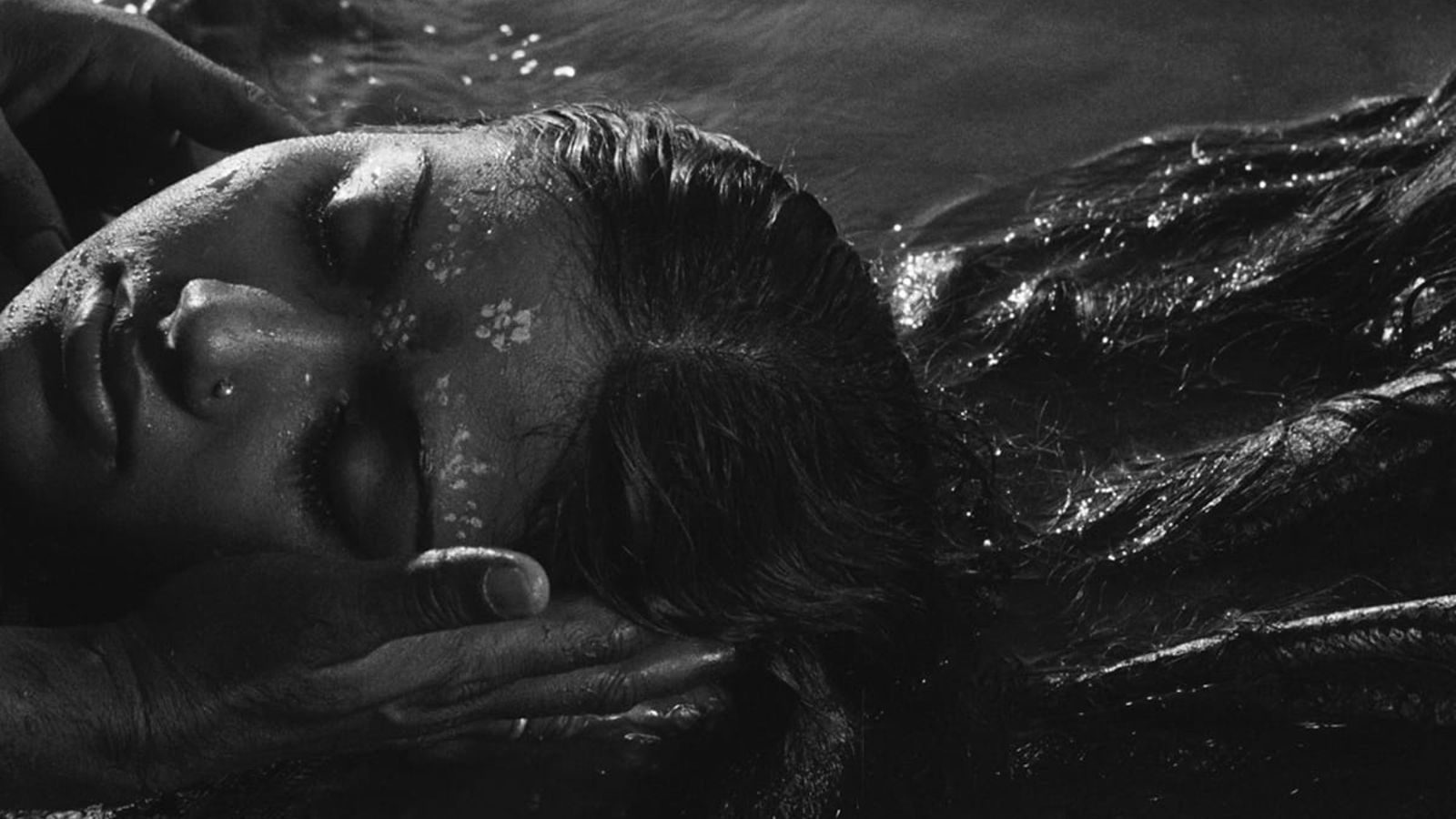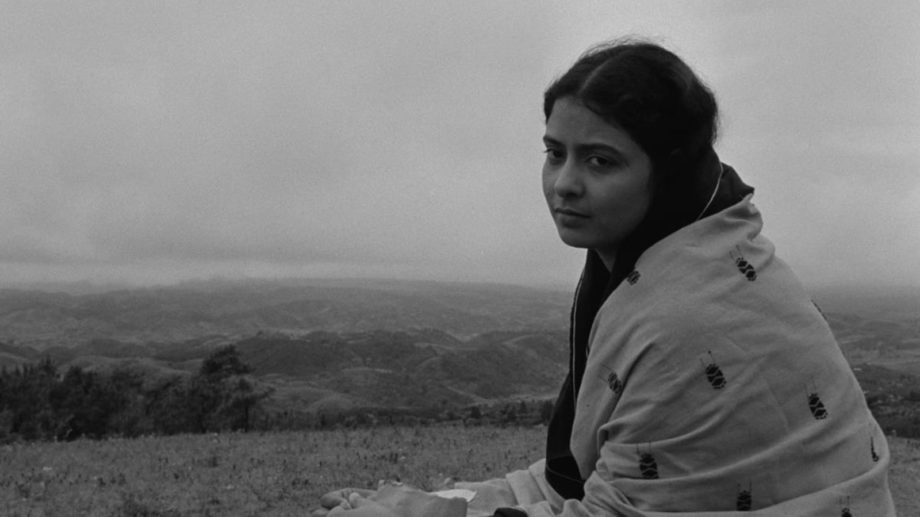“An extremely refined vision of cinema.” —Martin Scorsese
“Ghatak is the spirit that haunts world cinema with his seismographic renderings of trauma.” —Adrian Martin, The Criterion Collection
Film at Lincoln Center announces Poetry and Partition: The Films of Ritwik Ghatak, a retrospective of the visionary Bengali director’s career, November 1-6.
The career of director, writer, and actor Ritwik Ghatak was one of constant struggle—against a public that, per his contemporary Satyajit Ray, “largely ignored” his films; against a society that had lost its way amid rampant modernization; and against a national cinema whose conventions he broke time and again. He only completed eight fiction feature films during his lifetime, but each represents a landmark achievement in the history of Indian cinema, movingly reflecting the social realities of a nation trying to revise its identity in the aftermath of British colonial rule and the partition of India and Pakistan, and representing the melodrama of everyday life under the country’s newly modernized economy.
The retrospective presents a full range of Ghatak’s work, including his emotionally haunting and ambitious masterpiece The Cloud-Capped Star, which follows a family of refugees after the partition of India. Additional highlights include Ghatak’s penultimate film, the harrowing epic A River Called Titas, as well as his intensely intimate and semi-autobiographical final work, Reason, Debate and a Tale, starring Ghatak himself as an alcoholic intellectual.
Organized by Dan Sullivan, Richard Peña, Moinak Biswas, and Gayatri Chakravorty Spivak. Special thanks to the National Film Archive of India.
Tickets are now on sale and are $15; $12 for students, seniors (62+), and persons with disabilities; and $10 for Film at Lincoln Center members. Save with the purchase of three tickets or more.
Acknowledgments:
Columbia University
FILMS & DESCRIPTIONS
All screenings take place at the Elinor Bunin Munroe Film Center (144 West 65th Street)
unless otherwise noted.
The Cloud-Capped Star / Meghe Dhaka Tara
Ritwik Ghatak, India, 1960, 134m
Bengali with English subtitles
Considered by many Ghatak’s masterpiece, The Cloud-Capped Star is set in late-1950s Kolkata, just a few years after the partition that separated historic Bengal into the Pakistani East Bengal and the Indian West Bengal. Neeta (an extraordinary performance by leading Bengali actor Supriya Choudhury) is the eldest daughter in a family of refugees, as well as her family’s principal breadwinner. Yet, even as she becomes more visibly ill, her parents and siblings keep demanding more, squeezing the last bit of life from this warm, vibrant woman. Her relationships to the other women in her family—her mother and her younger sister, Geeta—are especially complex; together, the three women evoke multiple aspects of the feminine: the sensuous, the nurturing, and the destructive. A Janus Films release.
Saturday, November 2, 5:15pm (Introduction by scholar Udaya Kumar)
Tuesday, November 5, 2:00pm
Wednesday, November 6, 7:30pm
E-Flat / Komal Gandhar
Ritwik Ghatak, India, 1961, 134m
Bengali with English subtitles
The most formative artistic experience for Ghatak was undoubtedly his involvement with the Indian People’s Theater Association—a progressive, mainly traveling theater movement that inspired him to find innovative and creative ways to combine politics and art. Yet the IPTA was also a bitter experience for him: the demise of the group forever alienated Ghatak from the Bengali intellectual establishment. In this, his fifth feature, experimental theater director Bhrigu is consumed by his work—so much so that former collaborators threaten to splinter off and form a rival group. When Anasua, the niece of Bhrigu’s adversary, falls in love, new ruptures threaten to tear the group even further apart. Ghatak’s complex, self-referential drama explores the emotions, spaces, and sounds that serve to “partition” human beings politically, geographically, and aesthetically.
Saturday, November 2, 8:00pm (Introduction by Richard Peña)
Wednesday, November 6, 4:30pm
The Pathetic Fallacy / Ajantrik
Ritwik Ghatak, India, 1958, 102m
Bengali with English subtitles
Used to traditional country life, taxi driver Bimal (Kali Banerjee) struggles to fit into the mechanics of the modern, industrialized world. To do this, he has the help of his “special friend” Jagaddal, who tends to Bimal’s emotional as well as economic needs. Jagaddal is an ancient, battered Chevrolet, creaking along the backroads of Bengal, caught in an increasingly cantankerous relationship with his driver. The title—which literally translates to “The Unmechanical”—here refers to the belief that humans are separate, even superior, to the world around them. Ghatak fashions a tender, if at times chilling, story about a displaced soul, filling The Pathetic Fallacy with both historical and religious imagery.
Friday, November 1, 2:30pm (Introduction by Richard Peña)
Sunday, November 3, 5:15pm (Introduction by Richard Peña)
Reason, Debate and a Tale / Jukti Takko Ar Gappo
Ritwik Ghatak, India, 1977, 120m
Bengali with English subtitles
Ghatak’s extraordinary epitaph, completed in 1974 but not released until after his death, is one of the most remarkable films ever made. Ghatak, who had some experience as an actor, plays Nilkantha, a terminally alcoholic intellectual (and a thinly veiled version of the director himself). After his beloved wife dies, he takes off for the Bengali countryside, encountering a wide variety of characters: a refugee from Bangladesh searching for some kind of place in the world; a teacher whose school was closed after a wave of political violence and is heading to Kolkata; a group of tribal revolutionaries, the Naxalites, who reject modern India and seek a reawakening of what they believe is their original culture; and a weaver who assiduously works an empty loom simply because “one must do something.”
Saturday, November 2, 2:30pm (Introduction by scholar Moinak Biswas)
Wednesday, November 6, 2:00pm

A River Called Titas
A River Called Titas / Titash Ekti Nadir Naam
Ritwik Ghatak, India/Bangladesh, 1972, 159m
Bengali with English subtitles
One of the first Bangladeshi films, A River Called Titas is an epic tale charting a lost way of life. While visiting a neighboring village, fisherman Kishore (Prabir Mitra) marries Basanti (Rosy Samad) and has barely had words with her before she’s kidnapped on the river of the title. She manages to escape and is miraculously found alive by strangers, but she has lost her memory—of both the crime and of her past life, including her husband. Ten years later, she sets out with his son to find him. Oscillating between high-pitched melodrama and an almost documentary-like recreation of a riverside culture that has mostly disappeared—the boats, the customs, the rituals—A River Called Titas features some of Ghatak’s most striking visual compositions, brilliantly capturing both the wonder and treachery of the natural settings without descending into mere pictorialism.
Friday, November 1, 7:45pm (Introduction by scholar Gayatri Chakravorty Spivak)
Monday, November 4, 2:00pm
Tuesday, November 5, 7:30pm
The Runaway / Bari Theke Paliye
Ritwik Ghatak, India, 1959, 120m
Bengali with English subtitles
Ghatak drew upon details from one of his own youthful adventures for this lighthearted celebration of Kanchan, a kind of Bengali Huckleberry Finn who escapes the oppression of his disciplinarian father for the promise and excitement of El Dorado—that is, Kolkata, the city of the 10-year-old’s dreams. Once there, Kanchan encounters a variety of characters who reveal the pleasures and dangers of the big city: a schoolteacher now scraping by as a street peddler; a gangster masquerading as a magician; and Mini, a young girl who knows her way around the city’s tantalizing streets. Shot largely from his young protagonist’s point of view, The Runaway draws much of its power from the contrast between Kanchan’s wide-eyed wonder and our knowledge of what he’s really encountering.
Friday, November 1, 5:00pm (Introduction by scholar Moinak Biswas)
Sunday, November 3, 7:45pm (Introduction by scholar Moinak Biswas)
Subarnarekha
Ritwik Ghatak, India, 1965, 143m
Bengali with English subtitles
Subarnarekha forms the third and most emotionally riveting part of the director’s “Partition Trilogy” (along with The Cloud-Capped Star and E-Flat). Brother and sister Ishwar and Seeta scrape by in a refugee camp soon after partition. When they see an Untouchable woman being beaten, they take her son, Abhiram, into their meager dwelling. Soon after, their luck begins to change: Ishwar gets a job at a factory, and is able to pay for Abhiram’s education, arranging for him to continue his engineering studies in Germany. But Abhiram has decided to become a writer, instead, and when he and Seeta announce their love for each other, it sets off a chain of events that spirals toward an ending as devastating as Greek tragedy. Private lives blend seamlessly into national history in a film that, typically for Ghatak, features a river as both a symbol of separation and an evocation of the inexorable flow of life.
Sunday, November 3, 2:00pm (Introduction by scholar Udaya Kumar)
Tuesday, November 5, 4:45pm
Global Ghatak?
A symposium on the work of Bengali filmmaker Ritwik Ghatak will be held at Columbia University. This symposium includes such speakers as the Kenyan activist intellectual Ngugi wa Thiong’o, the Swedish investigative journalist and cultural theorist Stefan Jonsson, Gayatri Chakravorty Spivak, and film theorists such as Nora Alter and Dudley Andrew.
Sunday, November 3, 9:30-1pm*
Please note this event will take place at Columbia University, in the East Gallery of Buell Hall



